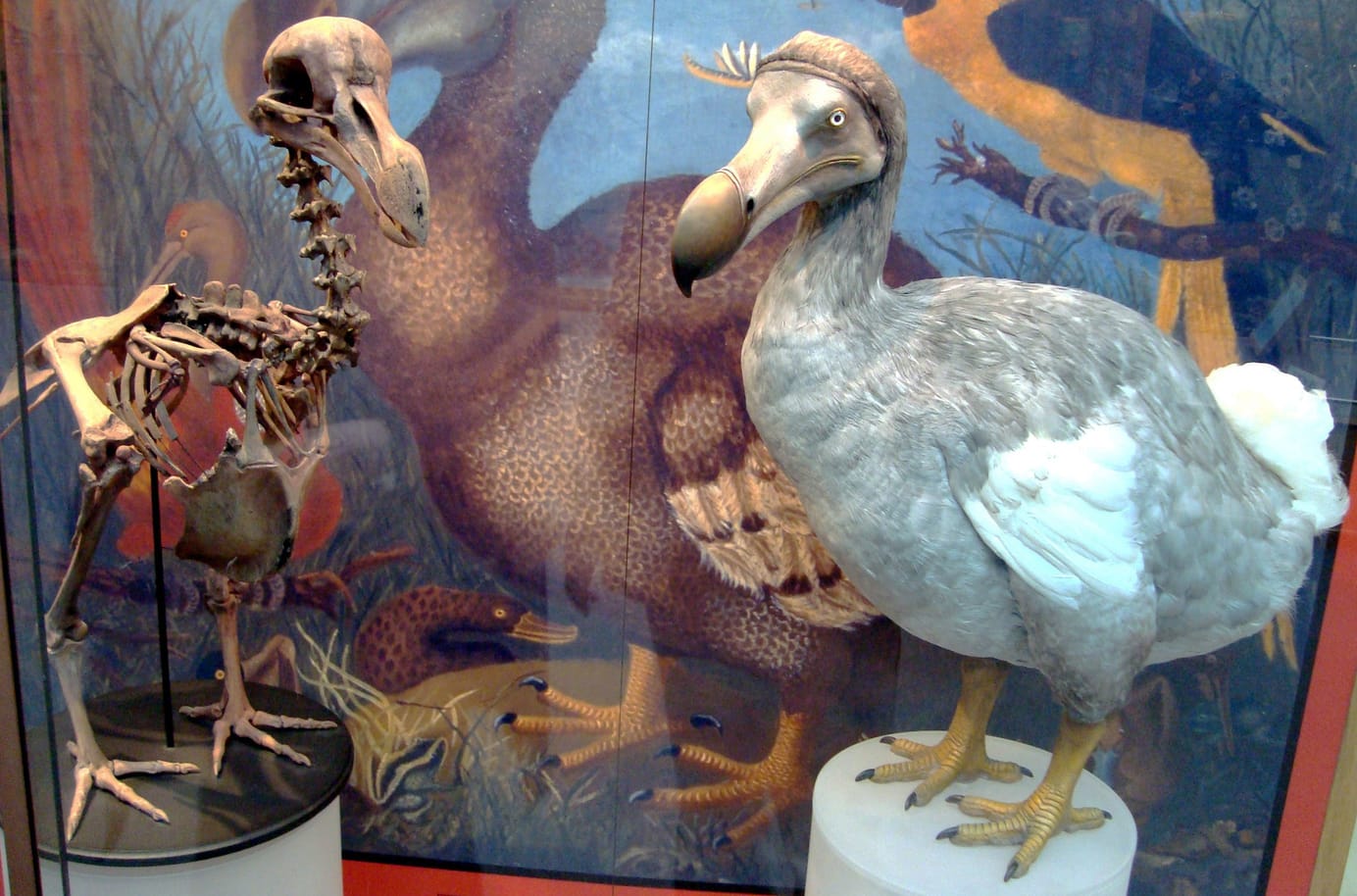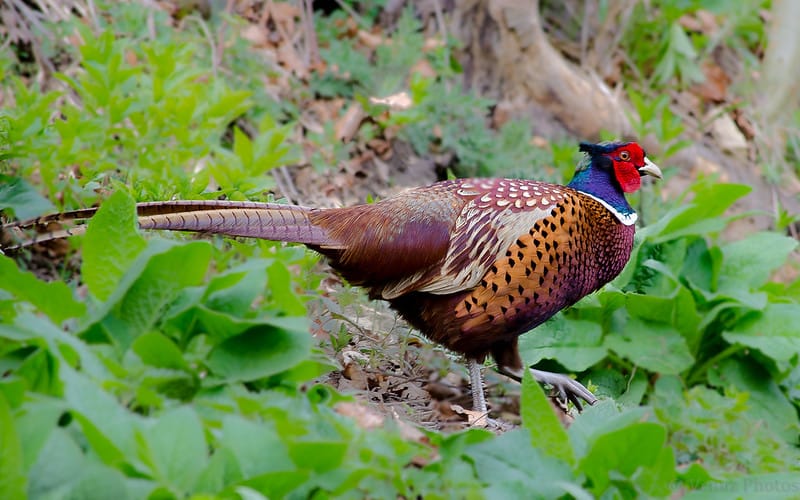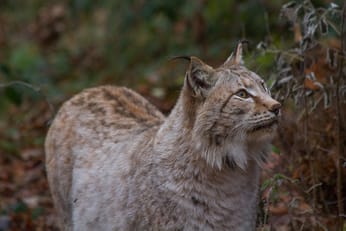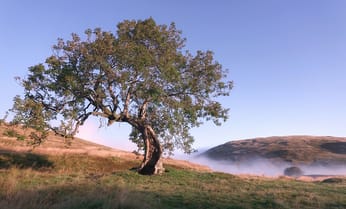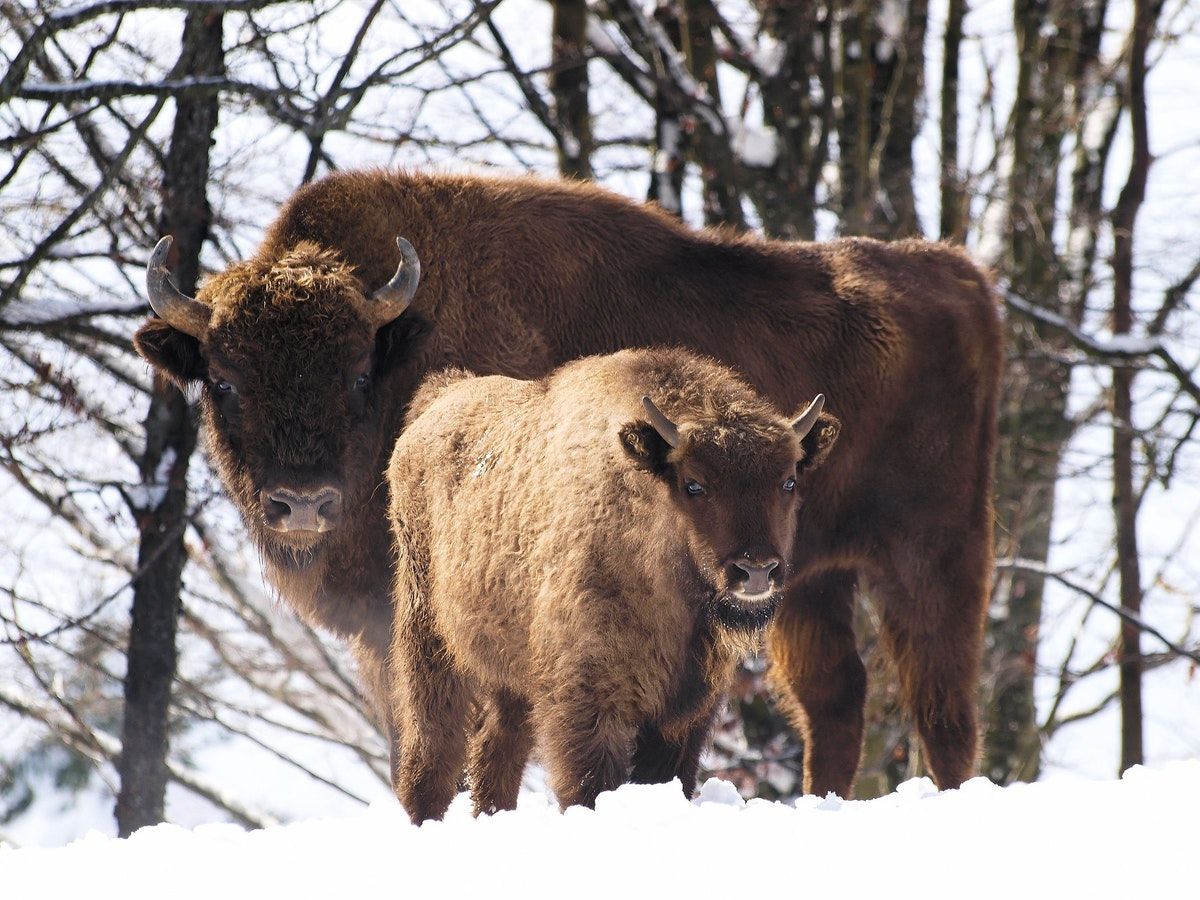
Wild Bison & Rare Bumblebees
The latest news on nature and conservation in the UK.
National news
Flooding | The government has set out a new plan to protect homes from flooding – and nature-based solutions play a big role. The blueprint is meant to prepare the country as climate change causes increased inundation; more than 5.2 million properties are already at risk. Some £200 million has been earmarked for projects such as “temporary or permanent water storage areas which also boost wildlife,” according to the government. But some people criticised the plan, reports the BBC. “It’s great that nature-based solutions are being adopted, but the government needs to move beyond trialling and testing – it’s clear that they work,” said Guy Shrubsole from Friends of the Earth. Several publications cover the local angle, including the Shropshire Star, the Yorkshire Post, and the Eastern Daily Press.
Insects | Buglife has launched a national network of potential and existing wildflower habitats across England, covering some 48,000 square kilometers. These are “designed to identify where creating new habitat will provide the greatest benefit for pollinators and help restore our declining populations of bees, butterflies, hoverflies and other pollinating insects,” according to Buglife. These will act as “stepping stones” across the country, reports the Times. The Guardian and the Independent also cover the story.
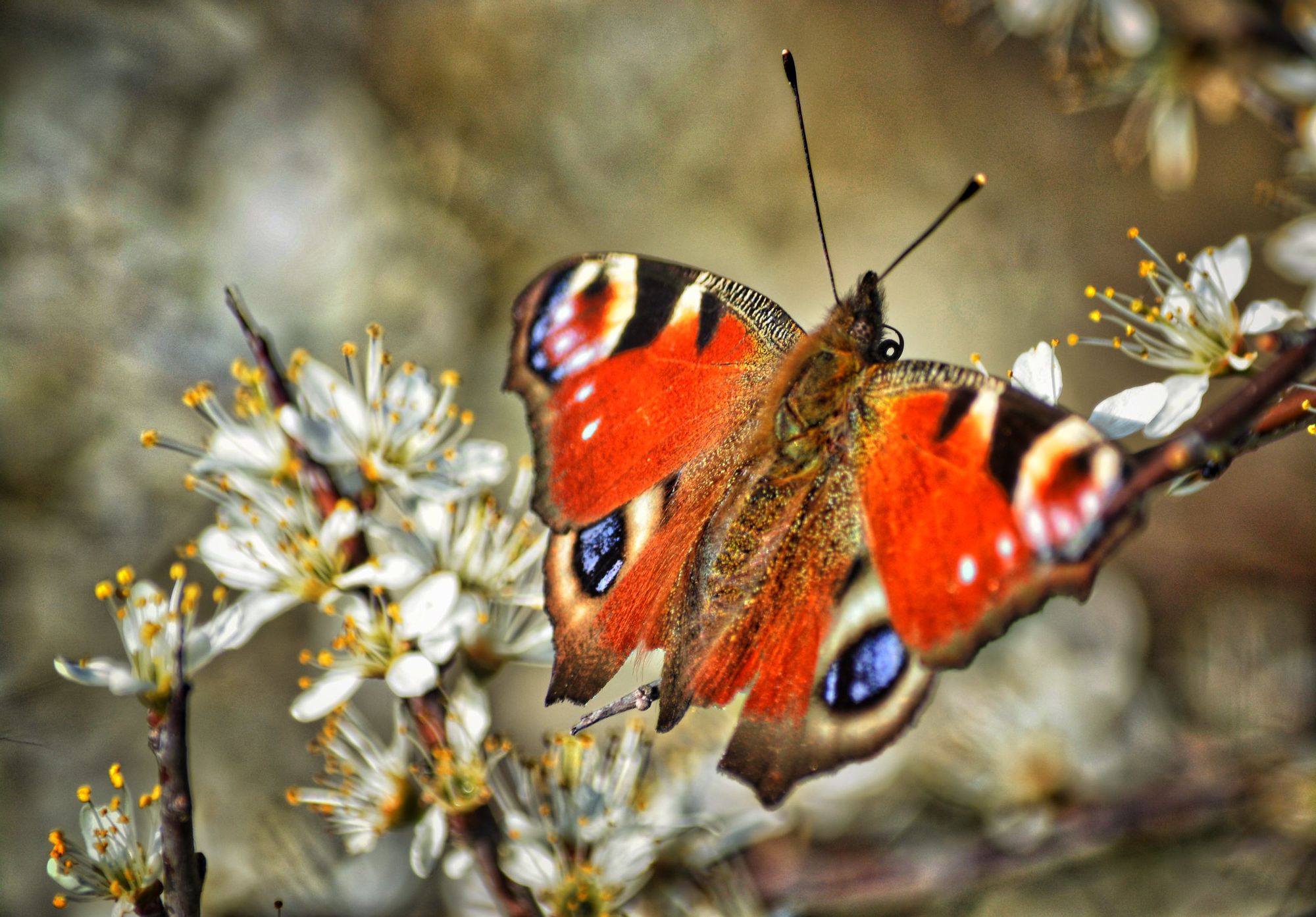
Solar | A bid for a judicial review of an enormous solar park in Kent has been refused. The Cleve Hill Solar Park, consisting of 800,000 panels to be built on 890 acres of farmland, was being challenged by Swale Borough Council on the grounds that the park would threaten wildlife habitats; the proposal has been opposed by both the Kent Wildlife Trust and the Campaign to Protect Rural England, reports the BBC.
In other news:
- An MP has asked for laws protecting hedgerows to be tightened. Shropshire Star
- More than £1.8m in funding for sixteen Scottish conservation projects is being finalised after a delay due to Covid. Scottish Natural Heritage
Across the country
Kent | Bison are to be reintroduced in Blean Woods near Canterbury. The bison will be accompanied by other grazing animals to “create the greatest plant and animal biodiversity possible,” according to the Kent Wildlife Trust, which is leading the project alongside the Wildwood Trust. The Guardian reports that one male and three females will initially be released, with natural breeding expected to increase the size of the herd. The conservation groups will prepare for the arrivals over the next 18 months by building a fenced enclosure, reports the BBC. The Independent and the Telegraph also cover the story. See ‘Driftwood’ for some reaction to the project.
East Anglia | A plan hatched by three farmers to restore nature across a vast area of East Anglia has been making waves this week. The new organisation, called WildEast, hopes to return 250,000 hectares to nature over the next 50 years by persuading farmers, councils, businesses, schools and ordinary people to pledge a fifth of their land to wildlife, the Guardian reports. But the farmers stressed that this was not a rewilding project: “It’s not rewilding, it’s making things wilder – not to create space for nature but to find out how we live inside the ecosystem,” said one. The Independent also covered the story.
Sheffield | The saga over Sheffield’s trees could be drawing to a close, with the publication of a new strategy drawn up by the city council and various conservation groups. Protesters rebelled when a road maintenance felling programme saw more than 5,000 street trees removed across Sheffield, explains ITV. The new strategy “outlines a clear proposal to promote and enhance Sheffield’s street tree stock whilst identifying the unique challenges of caring for trees growing in a highway environment,” according to the Sheffield & Rotherham Wildlife Trust and the council. The Woodland Trust celebrated that “thousands of mature trees will now be saved as a result” of the strategy.

Elsewhere:
- Bitterns have bred successfully on the Gwent Levels for the first time in 200 years. NRW
- In the Forest of Dean, the first pine martens to be reintroduced to England have had kits. The Guardian
- A goshawk has been trapped and killed in North Yorkshire. BirdGuides
- Old Welsh mines are still polluting rivers. Wales Online
- There are fears that the bearded vulture seen in the Peak District could be shot as grouse season approaches. BBC
- Seeds of the threatened mountain avens will be collected in the Highlands and propagated in the Lake District. The Scotsman
- The Black Country has been awarded Unesco global geopark status. BBC
- Environmentalists are protesting the removal of a hedgerow at a development site in Lancashire. Lancashire Post
Reports
Carder bee | The Bumblebee Conservation Trust has released a new conservation strategy for the rarest bumblebee in England and Wales, the shrill carder bee. The plan will inform the efforts of a new group of more than 30 organisations, which aims to create a landscape where the bumblebee can survive and thrive. The coalition will collect evidence on current populations, work with landowners to create habitats, and raise awareness among the wider public.
Land use | The Food, Farming & Countryside Commission has released a briefing based on a consultation on land use held in February (doesn’t that seem like a long time ago?). The Commission is calling for a “more strategic approach to land use in this country”, particularly in light of climate, nature and public health emergencies, and this briefing is part of that effort. “Land is the fundamental ingredient without which no government objective can be achieved. Proper use of it, especially on an island as small and densely populated as ours, is therefore essential,” the report says.
Evidence | Natural England has released a strategy for its use of science. The organisation aims to transition from being “evidence-based” to “evidence-led”. What that distinction means in practical terms I’m not sure, but if you want to dive into it, and what that means for nature, the report is here.
Science
Afforestation | Planting trees on heather moorland is not an effective way to sequester carbon, according to a study published in Global Change Biology. The study, carried out in Scotland, highlights the importance of maintaining soil carbon in tackling climate change. Some 12 years after planting two native tree species, soil organic carbon had actually declined by 58%. Almost 40 years after planting, tree biomass made up for the loss of soil carbon, but there was no overall increase in stocks. The lead author has been tweeting about the study.

Driftwood
Racism | It’s been a few weeks since I reported on the vague assurances that most UK natural history museums offered when I asked them how they were addressing their colonial pasts. This week, the Natural History Museum finally came out with a statement on increasing staff diversity (it was mostly basic stuff). But it also promised to review and acknowledge the history of its collections, including how they “came into being, where they were collected from, who was involved and what the impacts were.” It will be interesting to see where that leads.
Bison | The announcement that bison will return to Kent has produced a fair amount of comment, both positive and negative. Freelance conservationist Rob Sheldon was one person who expressed doubts about the project. “Have we lost the meaning of what a species reintroduction actually is – is putting a few individual bison in an enclosure a reintroduction or the utilisation of a species to perform a particular ecological role?” he wrote. Ecologist Steve Jones championed the project. “It’s sad that we wiped out our own native bison, but this is a very worthy stand in,” he wrote.
Gamebirds | The RSPB’s Martin Harper has written an update on the organisation’s review of its policy on gamebird shooting. He reports on the findings of a consultation of members, volunteers, staff and other stakeholders. “The majority are knowledgeable about the issues associated with intensive gamebird shooting, the majority support the conservation principles,” he wrote. “A minimum of 14% support some sort of ban on shooting (intensive or otherwise).”
Further reading:
- Hedgerows have received some good press this week. The Times
- Fake lawns are a “crime against nature”. The Times
- Lucy McRobert on the vaccination programmes for badgers. The Independent
- A guide to influencing the draft England Tree Strategy. Friends of the Earth
- Gordon Eaglesham on how to improve the dialogue around rewilding. The Ecologist
Happy days
Orb farm | The weirdest and coolest thing you’ll see on the internet this week, Orb Farm is a game where you have to design an aquatic ecosystem. The aim is to ensure optimum oxygen levels. Since my lockdown project has been to build my own wildlife pond, this struck a chord. Remember to fill it with water first; I realised too late I was killing all my virtual fish. I discovered the game through Jeff Ollerton’s blog, where he describes it as a “Tamagotchi for the green generation”.
Image credits: Brief, eltpics, Tim Dennell, Tim Parkin
Subscribe to our newsletter
Members receive our premium weekly digest of nature news from across Britain.
Comments
Sign in or become a Inkcap Journal member to join the conversation.
Just enter your email below to get a log in link.


